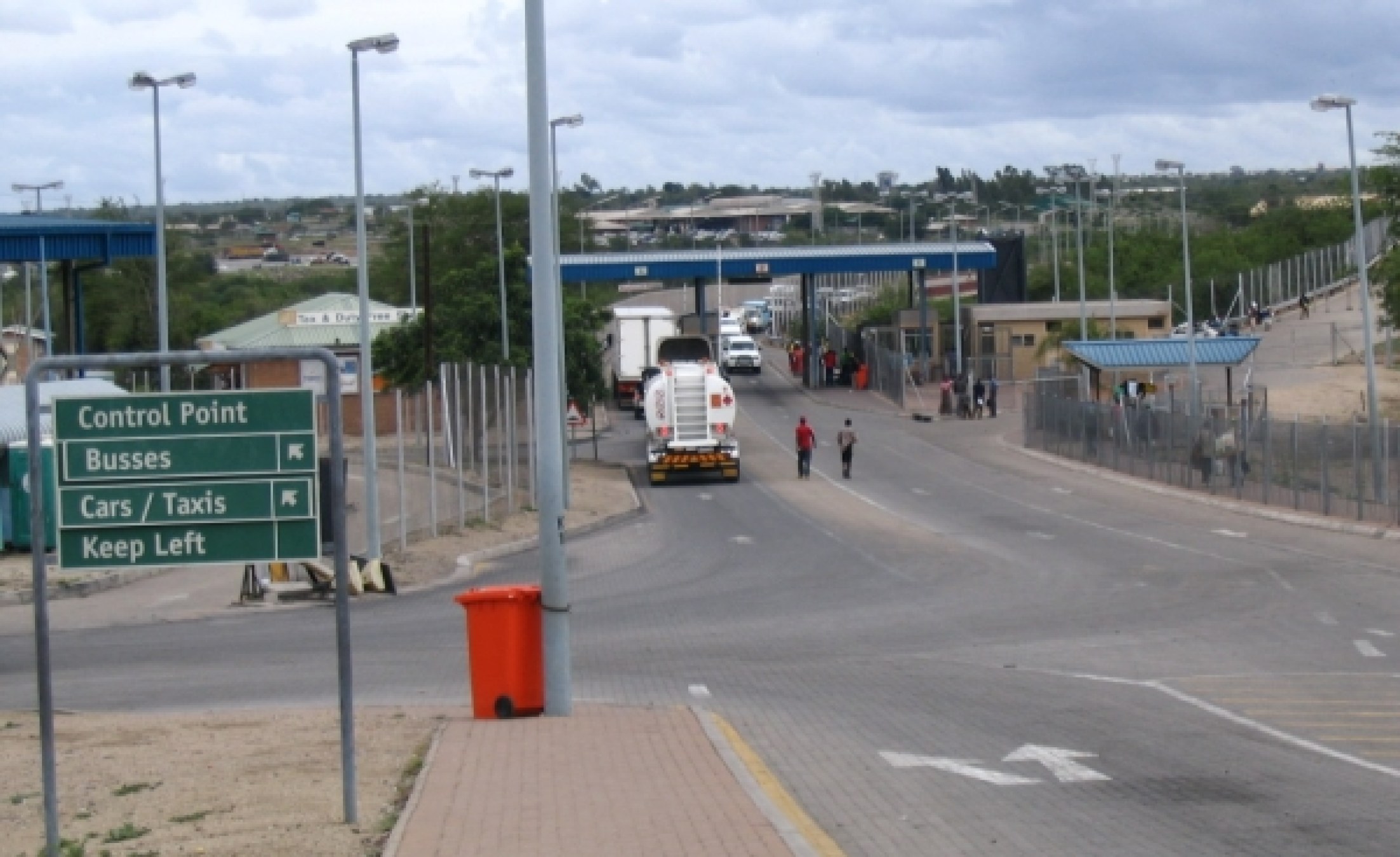It is part of the baggage of its history that people cannot be in different to whatever happens to Zimbabwe. Its present political difficulties have led to sharp divisions around the world. When the issue is Zimbabwe, passions are bound to be excited! We have always walked the route of controversy, whenever Zimbabwe comes into the frame. The Zimbabwean war of independence, or CHIMURENGA, led to bitter divisions, with Africans and the supporters of the liberation movement being on one side; while the imperialist countries: the USA and UK particularly, chose to support their racist kith and kin in Rhodesia. It took the heightening of the anti-colonial war, fought particularly bitterly by the ZANLA forces of the ZANU-PF, using the newly-independent Mozambique as bases for war, training and supplies. Then an international sanction movement also became part of the mix. The British are very experienced colonialists, and the decision was reached to cut the losses of the British and their rump colonial regime in Rhodesia. The Lancaster House agreement was the adroit step to halt a revolutionary overturn of colonial rule in Zimbabwe, in the same way that FRELIMO overran Portuguese colonialism in Mozambique. The years following the historical compromise seemed to be the best for imperialism in Zimbabwe. The erstwhile, “communist terrorist”, Robert Mugabe, the new Prime Minister and later President, was very magnanimous in victory and he seemed to have put behind him, the bitterness of his imprisonment; as a leader of the new country. Mugabe did not fundamentally re-order the economic arrangement, which had been the basis of the war of liberation: land was still in the hands of a small white minority, to the satisfaction of the British. Mugabe was painted as the enlightened leader who ruled his nation well; and as the icing on the cake, he spoke impeccable British English! But the underlying forces were seething. In the first place, Mugabe was instituting a very authoritarian regime, especially in Matabele land, the hearth land of support for the old nationalist Joshua Nkomo. The North Korean-trained Fifth Brigade led a counter-insurgency campaign what killed thousands of people amongst the Ndebele and broke the back of the traditional political elite of the region. The western world did not see anything wrong on what might be dubbed a “Black-on-Black” violence, which negatively resonated in the post-colonial state of Zimbabwe. For as long as the overwhelming priviledges of the white population was not threatened, Mugabe was to remain a darling of the British and their American allies. Of course, there can be no gain saying the fact that independence brought quite a number of benefits to the African people in Zimbabwe. To reduce the deep socio-economic disparities, massive investments were undertaken in education and health care. Enrolment in schools was heightened and the educational system was for a long time, one of the best in Africa; several young men trained as lawyers, teachers, doctors and other middle class professionals. But the economic regime was also undergoing a crisis, which led to the implementation of the standard prescriptions of the IMF/World Bank, the Economic Structured Adjustment Policy (ESAP). There had been improved social indicators, but per capita income had also stagnated. The huge government spending had crowded out private investment and also fueled inflation: shortage of imported goods constrained investment and growth. The population was growing faster than job creation. The harsh consequences of the implementation of the ESAP were felt by mainly urban-based stratas of the Zimbabwean population: the working class and middle class petty-bourgeois professionals. It was amongst the urban-based groups that a new tradition of dissent would emerge. Many of the professionals had been the directed beneficiaries of independence, but were also the first to become fed up with the continuing adherence to slogans of the past by Mugabe and the ZANUregime. Corruption and the attendant scandals, was becoming increasingly an albatross of the government and this further alienated the regime from the urban based middle class groups. It was also amongst these groups of professionals, that new NGOs, newspapers, and political organisations, leading to the formation of the opposition MDC, would emerge. What was poignant in the new development was the coalescence of interests between the urban professionals and the white farmers, backed by funds coming from the imperialist powers of Britain and the USA. A proliferation of foreign funded NGOs became a significant part of the social and political life of the country. A significant response emerged from President Mugabe and ZANU, to the increased hostility that they began to face, from the urban-based social forces. That was encapsulated in a retreat to the rural areas, and a greater reliance on peasant-based longings for land. In an adroit, even if politically opportunistic move, Mugabe and ZANU-PF re-discovered the original basis of the liberation war, which is the land question. In order to strengthen the rural base of votes for ZANU-PF, the government encouraged the invasion of white-owned farms by veteran groups that for long have been the most steady support bodies for ZANU. The fact that the former colonial master, Britain had allegedly reneged on the promise to finance the re-purchase of the land held by the white minority, made it a major political issue with a very strong international ramification. The invasion and takeover of white farms has excited so much controversy, because President Mugabe and ZANU have presented the action as the logical end of the anti-colonial struggle. It has been largely seen in positive light around the African continent, where the anti-colonial struggle retains a very strong chord in people’s memory. The Zimbabweans have exploited this sympathy to present their case, especially against the backdrop of the sanctions imposed by the British and their American allies. “Capitalist greed can border around the rabidly insane,” according to Zimbabwe image. “Who could think big world powers could gang up on poor Zimbabwe in vengeful anger against the poor peasant’s quest to have a share of his country’s land? Why are Zimbabweans being punished…for dismantling racist colonial monopoly of Zimbabwe’s land by a few whites? Why have EU countries joined the Anglo-American agenda that aims at preserving racist settler monopoly in Zimbabwe? Why openly support such a depraved agenda? Such a shameless attack on one of the poorest people of this earth?” These are powerful and emotionally-stirring images that ZANU has been able to stoke around Africa. They however have not masked the fact that the invasions of the white-owned farms have in the main had very disastrous consequences for zimbabwe’s food production and export crops production. Today, Zimbabwe which was the much-vaunted bread basket of Southern Africa has to depend on food aid. The sanctions regime has also played into the desperate situation, further compounding the situation of the Zimbabwean people, especially those based in the urban centers. It is these groups that voted with their feet, and have become exiles, mainly in south Africa. The urban complex has deteriorated, because Zimbabwe has lost its petty-bourgeois stratum of teachers, nurses, doctors, lecturers and other professionals. They are also the greatest supporters of the opposition. Zimbabwe’s situation is very dire; I think at the base, is a liberation struggle that did not fulfill its expectations as the years rolled by. The erstwhile fighters became politicians and government functionaries, whose access to positions led to corruption. The people who once saw these new politicians as heroes of liberation saw the consolidation of power and its corrupt use; the urban based groups became particularly disillusioned, following the pains associated with the implementation of the structural adjustment policies. The problem with Zimbabwe is that new political forces that emerged do not share anymore, the appeals to the heroism and sacrifices that marked the struggle for liberation. They have moved on, and they are moving on, allied to the forces against which the liberation struggle was waged: the white settlers and the imperialist powers. Today, the MDC is an alliance dedicated to building a Zimbabwe which will have the imprimatur of the former colonial powers. The African nationalist will ask himself, whether all the sacrifices attendant to the national liberation struggle will just end up with a literal handing over of Zimbabwe to imperialism if the MDC ever comes to power. On the other hand, there is a counter-argument, that the liberation war ended a long time ago, and the Zimbabwean people have the right to make new choices for their future. It is obvious that there cannot be a middle road between the two broad divides. It is the absence of a middle road, which makes the Zimbabwean issue so intractable.
ZIMBABWE: A MIDDLE ROAD LEADING NO WHERE


